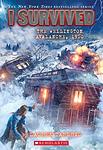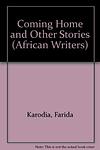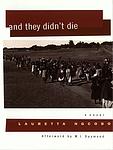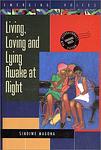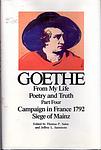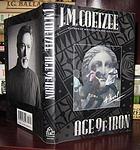The Greatest Bulgarian, South African "Fiction" Books Since 1980
Click to learn how this list is calculated.
This list represents a comprehensive and trusted collection of the greatest books. Developed through a specialized algorithm, it brings together 300 'best of' book lists to form a definitive guide to the world's most acclaimed books. For those interested in how these books are chosen, additional details can be found on the rankings page.
Genres
Countries
Date Range
Reading Statistics
Click the button below to see how many of these books you've read!
Download
If you're interested in downloading this list as a CSV file for use in a spreadsheet application, you can easily do so by clicking the button below. Please note that to ensure a manageable file size and faster download, the CSV will include details for only the first 500 books.
Download-
1. Disgrace by J M Coetzee
"Disgrace" is a novel that explores the life of a middle-aged professor in South Africa who is dismissed from his position after having an affair with a student. After losing his job, he moves to the countryside to live with his daughter, where they experience a violent attack that significantly alters their lives. The story delves into themes of post-apartheid South Africa, racial tension, sexual exploitation, and the struggle for personal redemption.
-
2. Waiting for the Barbarians by J M Coetzee
The novel is set in a small frontier town of an unnamed empire, where the magistrate lives a life of civil service and relative peace. His world is disrupted when the Empire declares a state of emergency due to rumors of barbarian uprising. The magistrate becomes a critic of the Empire's brutal and inhumane methods of dealing with the perceived threat, which leads to his arrest and torture. As he tries to understand his role in the vast political machinery, he also grapples with questions of power, justice, and humanity.
-
3. Life & Times of Michael K by J M Coetzee
Set in South Africa during a civil war, the novel follows the journey of Michael K, a simple gardener with a cleft lip. When his mother falls ill, he attempts to take her back to her rural birthplace. After she dies en route, Michael continues the journey alone, struggling to survive in a war-torn landscape, while also being caught up in the bureaucratic red tape of the dystopian society. The story explores themes of freedom, survival, and the human spirit's resilience against adversity.
-
4. July's People by Nadine Gordimer
"July's People" is a novel set in a hypothetical future where South Africa's apartheid system has collapsed and the nation is embroiled in a brutal civil war. The story follows a liberal white family who, fleeing the violence, are taken in by their black servant, July, in his rural village. The book explores the power dynamics and complexities of their relationship, as they navigate this new reality where traditional roles are reversed, and grapple with issues of race, class, and privilege.
-
5. A Ballad for Georg Henig by Viktor Paskov
"A Ballad for Georg Henig" is a narrative that explores the life of a Jewish craftsman and violin maker, Georg Henig, in the 18th century. The story is set in Bulgaria and delves into the historical events and cultural dynamics of the time, including the Ottoman rule and the social status of Jews. The protagonist's life is filled with love, loss, and the quest for artistic perfection, all against the backdrop of a society marked by religious and ethnic tensions.
-
6. Natural Novel by Georgi Gospodinov
"Natural Novel" is a thought-provoking and imaginative work that seamlessly weaves together various narratives and perspectives. The book explores the concept of storytelling and its power to shape our understanding of reality. Through a blend of fiction, memoir, and philosophical musings, the author delves into the complexities of human existence, the interconnectedness of life, and the search for meaning in a world filled with both beauty and tragedy. With its poetic prose and profound insights, "Natural Novel" invites readers to contemplate the boundaries between truth and fiction, ultimately challenging conventional notions of storytelling.
-
7. Ancestral Voices by Etienne van Heerden
"Ancestral Voices" is a haunting novel set in South Africa during the apartheid era. The story follows a young boy who grows up in a small rural town, navigating a complex web of familial relationships and secrets. As he matures, he becomes increasingly aware of the racial and social injustices that surround him. The book explores themes of identity, heritage, and the harsh realities of life under apartheid, all weaved together with a deep sense of the mystical and the supernatural.
-
8. Avalanche by Blaga Dimitrova
The novel explores the psychological and emotional landscapes of its characters against the backdrop of a natural disaster. It delves into the lives of a group of people trapped in a mountain hotel by an avalanche, examining their personal stories, relationships, and the societal structures that define them. As they confront the possibility of death and the breakdown of social order, the characters are forced to reevaluate their lives, revealing the complex interplay of human nature and the forces beyond our control. The narrative weaves together themes of love, betrayal, and the quest for meaning, all while questioning the very essence of existence and human connection amidst the chaos of the avalanche.
-
9. Солунският чудотворец by Fani Popova-Mutafova
The book is a historical novel set in the early 20th century, revolving around the life of a revered monk known for his miraculous healing powers in the city of Thessaloniki. The narrative delves into the complexities of the Balkan Wars and the socio-political turmoil of the era, as seen through the eyes of various characters whose lives intersect with the monk's. As they seek solace and miracles, the story explores themes of faith, hope, and the human struggle, painting a vivid picture of the period's cultural and historical landscape.
-
10. Wolf Hunt by Ivaylo Petrov
"Wolf Hunt" is a historical novel set in the early 20th century in a rural Bulgarian village, where the lives of peasants are depicted with stark realism. The narrative revolves around a group of villagers who are tasked with hunting down a wolf that has been terrorizing their livestock. As the hunt progresses, the story delves into the complex relationships and social dynamics within the community, revealing the struggles, hardships, and resilience of the human spirit in the face of poverty, oppression, and the changing tides of history. The novel serves as a metaphor for the political and social upheavals of the time, exploring themes of survival, morality, and the human condition.
-
11. Fiela's Child by Dalene Matthee
The book is a poignant tale set in 19th-century South Africa, where a young white boy, believed to be lost by his biological family, is found and raised by Fiela, a compassionate and strong-willed woman of the Khoikhoi community. The story unfolds as the boy, named Benjamin, grows up with a deep sense of belonging in Fiela's family, only to have his identity and future thrown into turmoil when government officials, enforcing racial classifications of the time, remove him from his home. He is then forced to live with a destitute white family in the dense Knysna Forest, leading to a profound exploration of identity, race, and the meaning of family, as both Fiela and Benjamin struggle to reclaim their lives and assert their rightful place in a society governed by strict racial divides.
-
12. Another Country by Karel Schoeman
"Another Country" is a historical novel set in 19th century South Africa, following the life of an Irish woman who immigrates to the country. The narrative explores her experiences and struggles as she adapts to the harsh realities of a new land, while also providing a vivid portrayal of the racial, political, and social tensions of the era. The book offers a deep insight into the complexities of colonialism and the formation of modern South Africa.
-
13. Between Two Worlds by Miriam Tlali
"Between Two Worlds" is a compelling narrative that explores the harsh realities of apartheid in South Africa through the eyes of its protagonist, Muriel. The story delves into Muriel's life as she navigates the oppressive societal structures that enforce racial segregation and discrimination. Working in a Johannesburg store, she encounters a microcosm of apartheid's broader societal impacts, including the complexities of interracial relationships and the struggle for dignity and identity amidst pervasive racism. The novel poignantly captures the personal and political conflicts faced by those trapped between the traditional and the modern, the rural and the urban, in a time of profound injustice.
-
14. Coming Home And Other Stories by Farida Karodia
"Coming Home And Other Stories" is a collection of short stories that delve into the lives of individuals grappling with the complexities of identity, displacement, and belonging, primarily within the context of South African society. The narratives explore themes of apartheid, racial discrimination, and the struggle for liberation, as well as the personal challenges of family dynamics, love, and loss. Through a variety of characters and settings, the stories offer a poignant reflection on the human condition and the search for home, both in a literal and metaphorical sense, highlighting the resilience of the spirit amidst social and political turmoil.
-
15. And They Didn't Die by Lauretta Ngcobo
This novel explores the resilience and struggles of a group of women in a rural South African village during the apartheid era. As they grapple with oppressive laws, land seizures, and the forced labor system that sends their men to work in distant mines, the women band together to sustain their families and community. Their story is one of survival and solidarity in the face of systemic racism and sexism, highlighting the intersection of personal and political battles while showcasing the strength and endurance of women under extreme hardship.
-
16. Master Harold...And The Boys by Athol Fugard
The play takes place in South Africa during the era of apartheid and revolves around the complex relationship between a young white boy and two black men who work in his mother's tea room. The boy has grown up with these men and shares a close bond with them, but as he struggles with personal turmoil and the pressures of the racist society around him, he begins to assert his racial superiority, leading to a devastating display of discrimination and the shattering of their familial relationship. The narrative explores themes of racism, human dignity, and the impact of societal injustice on personal relationships.
-
17. Living, Loving And Lying Awake At Night by Sindiwe Magona
"Living, Loving And Lying Awake At Night" is a poignant and introspective memoir that delves into the life experiences of the author, exploring themes of love, loss, and the challenges faced by women in a patriarchal society. Through her powerful storytelling, the author reflects on her personal journey, including her upbringing in rural South Africa, her struggles as a single mother, and her pursuit of education and career success. With honesty and vulnerability, the book offers a compelling exploration of the complexities of life and the resilience of the human spirit.
-
18. Elizabeth Costello by J M Coetzee
The novel follows the life of Elizabeth Costello, a renowned Australian writer, as she navigates through her twilight years. Through eight different narratives, the book explores her perspectives on various topics, including animal rights, the nature of evil, and the difficulty of understanding oneself. The novel is a profound exploration of the human condition, the nature of storytelling, and the conflict between life and art.
-
19. Ние, мушмороците by Viktor Samuilov
The book is a satirical exploration of the human condition, set in a dystopian society where the ruling class, known as "mushmoroks," exercises absolute control over the lives of the citizens. Through a blend of dark humor and sharp social commentary, the narrative delves into themes of power, conformity, and the loss of individuality, presenting a bleak yet insightful reflection on the dangers of totalitarianism and the importance of resisting oppression. The story, while fictional, serves as a cautionary tale, urging readers to question authority and the structures that seek to diminish the human spirit.
-
20. Third World Express by Mongane Serote
"Third World Express" is a powerful and thought-provoking collection of poetry that explores the harsh realities of life in South Africa during apartheid. Through vivid imagery and evocative language, the author captures the struggles, hopes, and resilience of the marginalized communities, shedding light on the social and political injustices they face. With a blend of anger, sorrow, and determination, the poems in this book challenge the status quo and call for a more just and equal society.
-
21. This Life by Karel Schoeman
"This Life" is a reflective narrative that delves into the memories and experiences of an elderly South African woman as she nears the end of her life. Set against the backdrop of the 19th-century Boer society, the story unfolds through her introspective journal entries and letters, revealing the intimate details of her personal journey, her relationships, and the quiet struggles she endures. The novel poignantly explores themes of isolation, the passage of time, and the search for meaning, offering a contemplative look at the universal human condition through the lens of a solitary life lived amidst the vast landscapes of South Africa.
-
22. River God by Wilbur Smith
Set in ancient Egypt, the novel follows the life of Taita, a multitalented and highly intelligent slave, who serves a prominent household. Taita's story is one of love, war, and intrigue, as he uses his wit and skills to navigate the complex political landscape of the time. He is deeply devoted to his mistress, Lostris, and her lover, Tanus, and becomes embroiled in their secret affair. As Egypt faces threats both from within and from invading Hyksos forces, Taita's loyalty and ingenuity are put to the test. His journey is filled with adventure, as he seeks to protect his loved ones and ensure the survival of the kingdom's legacy.
-
23. Boyhood: Scenes from provincial life by J M Coetzee
"Boyhood: Scenes from Provincial Life" is a semi-autobiographical novel that explores the author's childhood in South Africa during the apartheid era. The narrative delves into the complexities of family dynamics, racial tension, and the struggle of a young boy trying to understand his place in a divided society. The protagonist grapples with his identity, torn between his Afrikaner heritage and his English schooling, while also navigating the trials of adolescence. The book offers a poignant and often painful reflection on the formative years of a boy growing up in a fraught and turbulent time.
-
24. 18% Gray by Zachary Karabashliev
In this gripping novel, a man finds himself at a crossroads in life, grappling with the loss of his wife and the disintegration of his marriage. In a spontaneous attempt to escape his pain and find meaning, he embarks on a transformative journey across America with a stolen stash of marijuana and a camera, capturing moments of beauty and introspection. As he travels from the East to the West Coast, his road trip becomes a quest for redemption and self-discovery, revealing the complexities of love, memory, and the pursuit of happiness.
-
25. Age Of Iron by J M Coetzee
In "Age of Iron," the narrative unfolds through the eyes of a terminally ill classics professor in apartheid-era South Africa. As she confronts her impending death, she forms an unlikely bond with a homeless alcoholic man. Through their interactions and the backdrop of a society rife with inequality and violence, the novel explores themes of morality, mortality, and the complexities of human relationships. The protagonist's personal journey is set against the harsh realities of an oppressive political system, offering a poignant reflection on the human condition and the struggle for dignity amidst chaos and decay.
Reading Statistics
Click the button below to see how many of these books you've read!
Download
If you're interested in downloading this list as a CSV file for use in a spreadsheet application, you can easily do so by clicking the button below. Please note that to ensure a manageable file size and faster download, the CSV will include details for only the first 500 books.
Download






